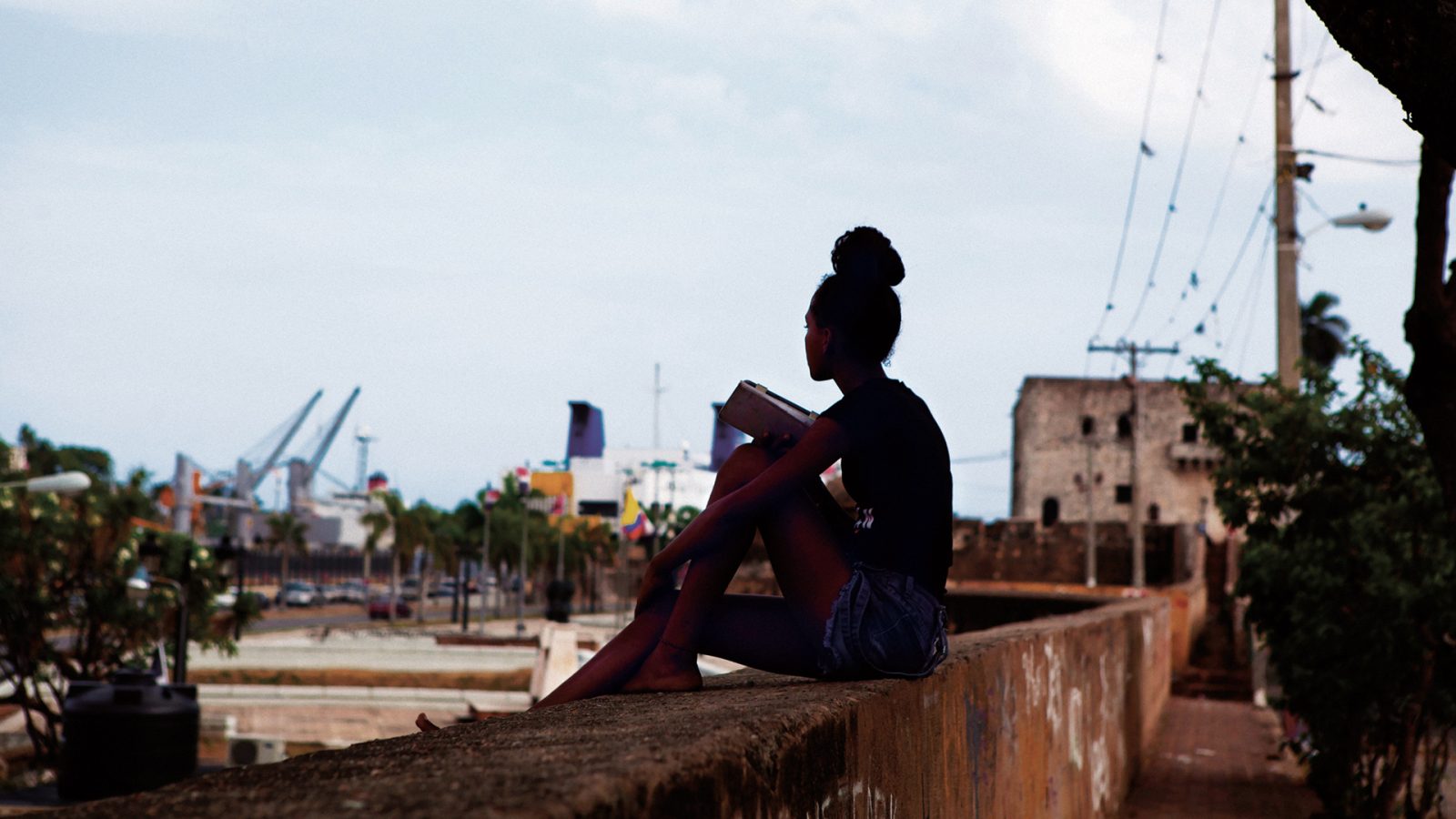Under the Radar: One Year On
Last year Tim sat down to speak with Bryn*, a former Met Police officer, just before he left to volunteer a year working with the IJM Field Office that we support in the Dominican Republic. He recently met up with Bryn again to find out how it went.

So we last spoke just over a year ago and you were about to head out to the Dominican Republic to help rescue children from sex trafficking. At the time you didn’t know much about what your role was going to be – what did you end up doing?
When asked what my biggest fear was going into this experience, I had originally said, ‘being under-used’. I was scared that red tape and bureaucracy might prevent me from being able to fully contribute to the project whilst I was there. Fortunately my fears were soon allayed. From the minute I landed in the Caribbean I was put to work. There was a team of NFL players visiting our office who arrived on the same flight, which, ridiculous as it may sound, I was called on to provide security for during their trip. At the end of that week, I went straight into conducting undercover operations with the two field office investigators. We had two rescues within the first month, one successful and one which was stood down at the last minute after the bar owner got nervous, shut down his venue and disappeared. My time as an investigator was divided between what was called ‘Levantamiento’ – which meant proactively exploring the country for cases of CSEC (Commercial Sexual Exploitation of Children), and conducting intelligence-based operations alongside the anti-trafficking department of the police and prosecutors office. And when we weren’t doing that, I worked on developing the office’s security protocols.
We spoke about your hope of being able to make an impact in your time with them. Having been home for about a month now, what’s your reflection on your time there and the things you were able to do?
I think that’s what we all want isn’t it? To feel like, in someway, we’ve made a positive impact with our time in this world. Sadly it’s not always clear to see that impact or the eternal ramifications of your efforts. The vast majority of the boys, girls and young women I encountered last year are still living in positions of poverty, insecurity and forms of abuse. I praise God that we were able to save a few from their desperate circumstances but it was by no means the majority. Sadly, due to the nature of my role, I encountered hundreds of lives with desperately sad stories, whom we simply couldn’t help. If we could prove someone was being controlled and exploited, child or adult, we would immediately mount a response alongside the authorities, but so many of the lives I encountered didn’t fit those exact circumstances. The facts or their cases weren’t any less tragic, but it prevented us from being able to respond – and I really struggled with that, especially in the first few months. I felt rather helpless. I am grateful that I could give these situations to God, but it wasn’t always easy to do. It did, however make every rescue and intervention that much more special. Being able to change the direction of someone’s life for the better is enormously rewarding and having a chance to do that at street level was a real honour that I will forever be grateful for.
We also spoke about the fact that you were going to be putting yourself in some challenging and difficult positions. How did you and the people you worked with deal with that?
It’s definitely tough but the field office recognises the pressure and vulnerability that their staff are exposed to, especially it’s investigators. Prayer is a daily part of the working day. Every morning between 8am and 8.30am, there is half an hour put aside for personal devotions. Then again at 11:30am, everyone in the building gets together for a team devotional before lunch, where we sing a couple of worship songs, read the bible, and pray for each other and our case work. Christian fellowship is a major part of the fabric of every day life at IJM. There’s also a third party counselling service available for the office staff to use and a chap you can speak to over the phone based in DC. After that it’s down to you.
I must admit that I found it hard at times knowing how to deal with the pain that came with what I was seeing and learning. Going out there as a single man and coming home to an empty apartment after a night on the streets was tough.
I came home for a short break at Christmas and within a couple hours of landing in London I was sat at my Nan’s kitchen table sobbing into a bowl of tomato soup! I had no idea where it came from and it took me and everyone else at dinner completely by surprise! I think that I had been given a safe place, surrounded by loved ones where I could release the pressure valve for a moment, but when the time came to return to the DR, I felt ready and keen to get back amongst it.
God is good and I believe he equipped me with exactly what I needed when I needed it. He made me strong when I needed to be strong and gave me a fantastic group of people to support me in prayer throughout my time there. I also had a good group of ex-pat friends whilst I was in Santo Domingo, who helped me feel less isolated in a country where I only understood a smattering of the local language!
During your visit we were able to send over to the Field Office £500 we raised from an open mic night. What kind of difference does financial support like that make to the team on the ground?
Yes you were and thank you so much. The encouragement of other people praying, sending emails and supporting the field office financially is incredibly important. It reminded all of us that we weren’t in this alone and were in fact honoured to be able to serve this cause so directly, in place of so many people with a heart for this issue. There was a few months before Christmas last year where funding issues meant we had to really tighten our belts at the office. It had such a literal effect on our everyday work. We couldn’t go on as many operations. We couldn’t investigate in far flung parts of the country. We couldn’t afford to support our participant’s needs as much as we would have wanted. It was interesting to see at the ground level how a not-for profit entity exists. It is completely reliant on funding, without finance they can’t function. So it’s impossible to understate the importance of efforts such as the open mic night to raise additional funds for the project – they have a very literal and life giving effect.
How has your time in the field with IJM changed your opinion of them and the work they do? How has it changed your opinion of a God of justice?
IJM is ultimately a family. It’s imperfect like people are imperfect and has problems like every family I’ve ever known. But it has a very good head in the form of an amazing leadership team and more importantly, it has God’s heart. I was left with absolutely no doubt of that. My experience in the field removed the shiny veneer of IJM’s somewhat corporate image and reduced it down to a group of hard working individuals committed to seeing change come to their country. In a time where more and more scrutiny is being made of non-profit organisations, quite rightly, I was very impressed with the way IJM self-governed in a largely under-supervised sector. I was also impressed that, despite their exponential growth and influence across the world, they remain committed to being 100% Christ-centred in their approach.
In respect to my opinion of the God of justice; I’m coming to realise that our version of justice is a far cry from God’s. Sending his perfect son to die as a sacrifice for my crimes isn’t justice, is it!? In fact it’s the antithesis of justice. In a world of human justice, criminals are punished and the innocent are set free. But yet this is not what happened in the example of the crucifixion. But if it wasn’t for the ultimate act of injustice I wouldn’t be set free.
No amount of time in a prison cell will be an adequate punishment for the egregious acts that are committed on innocent lives across this world. No punishment a court could give out would make things even or undo the incalculable damage that’s been done. I’ve come to see that we have to find the peace that we associate with justice in God. If we search for it in convictions and court results then we’ll be left unsatisfied. Having said that – we still have to strive for the best criminal justice system we can. A system that functions to protect the victim and hold the offender to account. We have to strive wholeheartedly for that. The DR and many other countries around the world, including our own, still have a long way to go on improving that system. But I have a growing sense of peace that win, lose or draw – God is the ultimate judge and I can, at least try to give the matter to him.
Finally, what are you going to be doing now that you are home?
Well it’s likely that I will stay involved in investigating trafficking in one capacity or another, but at the moment I’m currently in the process of launching a not-for-profit, specialist coffee business. It’s called Justice Coffee, and we should have an online store up before Christmas. The business will sell ethically sourced, premium coffee online in home brew 250g bags to the discerning coffee lover who likes to enjoy a quality brew. All of the profits generated from our sales will go towards funding human trafficking investigations and aftercare solutions in London and around the world.
Make sure you remember us at Christmas and buy some top quality coffee for your loved ones!
Bryn will be speaking about his experience in the DR at our next Open Mic night happening on Saturday 11th August. You can book tickets here.
Earlier this year Channel 4’s Unreported World did an episode on underage sex workers in the Dominican Republic, which Bryn and IJM advised on. You can watch that here.
You can also find out more about the work of IJM and read the latest annual report from the DR Field Office here.
*At the time Bryn asked us to the pseudonym John as he was going to be working undercover.



